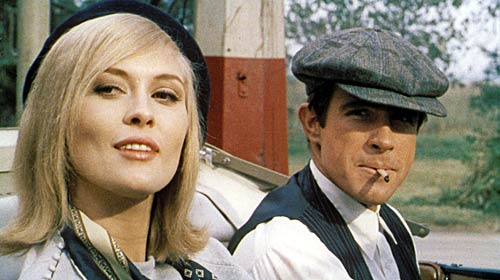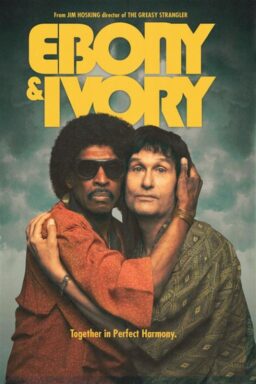Not since “I, a Woman” hit the suburbs has a movie caused more excitement than “Bonnie and Clyde.” It’s the blood-soaked, tenderly photographed love story of two bandits and the banks they called their own.
Most critics said it was the best movie of the year. But three major publications attacked it. Newsweek blasted it one week, but in its next issue the Newsweek critic changed his mind and said it was a Hollywood milestone. Bosley Crowther of the New York Times attacked the film on three different occasions. Last week, it was announced that Crowther will retire.
The big holdout was Time magazine, which has never changed its mind about anything. In its first review, Time dismissed the movie as historically inaccurate. But last week, in a dramatic about-face, Time put “Bonnie and Clyde” on its cover and assigned Cinema Writer Stefan Kanfer (its new critic, replacing the guy who didn’t like the movie) to write the story. This time, Time found the movie a brilliant achievement.
What mysterious force caused three giants of journalism to change their minds? What caused Crowther’s downfall after 29 years as the dean of U.S. movie critics? What the hell’s going on?
ACT ONE. It’s raining in Dustbowl, Texas, and Bonnie and Clyde are sitting inside their stolen 1929 six-cylinder Ford coupe with the windows rolled up. The patter of raindrops on the roof sounds like a distant machine gun.
CLYDE (picking graham crackers from his teeth): Whatcher doin’ there, Bonnie honey?
BONNIE (snatching her pencil back from Clyde and wiping graham cracker off its point): I’m tryin’ to write a ballad but I keep getting’ all this damn gummy graham cracker all over my yeller legal pad.
CLYDE: A ballot? How you gonna vote when you ain’t even registered? Despite all them Roosey-velt posters we put in the movie.
BONNIE: Not a ballot, honey bun, a ballad. That’s like a song, only when you’re a folk-hero team of bank robbers like us you gotta write ballads instead.
CLYDE: What you writin’ about?
BONNIE: Well, I’m trying to knock out a little something for Time magazine.
CLYDE: Yes, Ma’am. You go right ahead. Now we got that fellow from Newsweek straightened out, Time’s all that’s left.
BONNIE: Listen to this.
You’ve all heard the story
Of Bonnie and Clyde
At least in Newsweek
And the New York Times
Bosley Crowther didn’t like us…
CLYDE: Bow-sley Crawfer? Who the Sam Spade is he?
BONNIE: He’s the one said we didn’t look nothin’ like ourselves.
CLYDE: Ain’t that a laugh?
ACT TWO. It is sunny in Mossville, Texas. The distant patter of machine gun fire sounds like raindrops on the roof of a stolen 1929 six-cylinder Ford coupe. C. W. Moss, a gas station attendant, is just draining the last of the regular into the Ethyl pump when Bonnie and Clyde drive up.
CLYDE: Fill’er up, boy, and step on it. We got the Texas Rangers on our tail.
C. W. MOSS: Gee, that must mean this here’s a stolen 1929 six-cylinder Ford coupe, and you must be Clyde Barrow and that there’s Miss Bonnie Parker and you rob banks.
CLYDE: You a real smart boy. We could use you as a getaway driver. Take the money out of the cash register and jump in. And while you’re at it, quit slobbering.
C. W. MOSS: Can’t help it. Ever since I was in “Wild Angels,” it ain’t been nothing but slobber, slobber. (He gets into the rumble seat and opens an issue of Time.) Hey, Clyde?
CLYDE: Yeah?
C. W. MOSS: How come is it that when they write about us in Time, they allus refer to me as a previously unknown character actor while you is the brother of Shirley MacLaine?
CLYDE: Just you be thankful you ain’t the brother of Shirley MacLaine, or all them Hollywood starlets would be after you.
BONNIE: That’s a laugh.
CLYDE: I told you I weren’t no lover boy. But you may just be the best damn girl in Texas.
BONNIE: That’s what Elia Kazan said when he talked me into joining the Lincoln Center Repertory Company.
ACT THREE. It’s night in On Location, Iowa, and the distant chatter of a typewriter sounds like someone running amok in the 1929 Time magazine six-cylinder Cinema Section. Bonnie, Clyde and C.W. have been joined by Clyde’s Kanfer, ironically handcuffed by his own editorial policy.
BONNIE (sticks a typewriter in her mouth and poses next to the hapless Cinema Writer): Clyde, get the Polaroid and shoot a picture of us two. Boy, is Time‘s face gonna be red when they see this!
BUCK: Said our movie wasn’t no good. Boy, howdy!
They are in a motel room, and have backed their car through the wall. Sitting on the spare tire is Time Cinema Writer Stefan Kanfer, Buck, and Buck’s new bride, Blanche, who is a preacher’s daughter. Now read that sentence once again, slowly.
BUCK: Whoopee! Did we ever have a time!
CINEMA WRITER KANFER: Don’t make puns.
C.W.: Look who’s talking.
BLANCHE (sniffs): And him a preacher’s daughter, jest like me.
BUCK: Now that’s interesting. Where you ever learn to wave that spatula, Blanche honey?
BLANCHE: Actor’s Studio. Ain’t a real spatula less it got spit, tears and old egg yolk on it.
CLYDE (snaps a picture of Bonnie with Cinema Writer Kanfer): We got you now! We got you now! (Grabs Cinema Writer Kanfer’s handcuffed editorial policy and throws it out the window.)
BONNIE: We gonna teach you a lesson you’ll never forget, Cinema Writer Kanfer! We took that Newsweek feller for a ride and he changed his mind like lightning. And you know what happened to Bosley Crowther. Replaced by a 29-year-old six-cylinder New Leftist from the New Yorker.
CINEMA WRITER KANFER (pales): Not that!
CLYDE: And that’s what’s gonna happen to you, big boy, unlessen you change your mind and put us on the cover next week.
BONNIE: S-h-h-h Lissen to this:
You’ve all heard the stor-ee
Of Newsweek and Time.
They didn’t like Bonnie
They didn’t like Clyde.
But Cinema Writer Kanfer
Be gonna show what-fer
And he’ll say we’re good
Although we was bloody…
CLYDE: Now jest hol’ on a minute, Bonnie baby. This cheer is goin’ in a big magazine. We don’t wanna look ignorant. “Good” don’t rhyme with “bloody.”
BONNIE: What’s-a matter, boy-ee? Ain’t you seen the movie?












